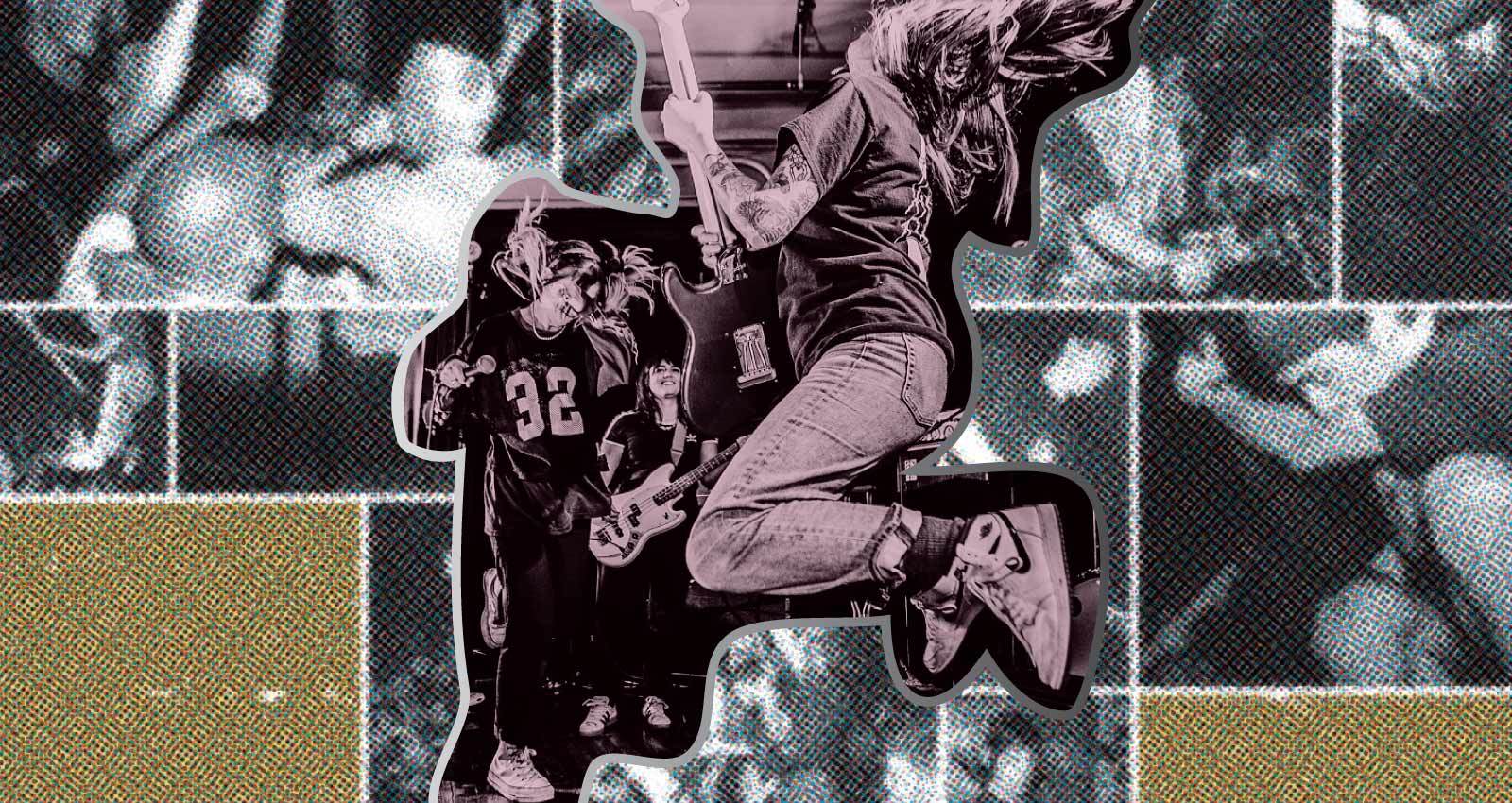
In the winter of 1984, just three years after legendary Boston straightedge band SS Decontrol formed, Springa (David Spring), the group’s lead singer, had some thoughts about the scene. Taking the stage at what was supposed to be the final show by fellow Boston band Jerry’s Kids, Springa looked into the audience and proclaimed that hardcore was dead.
The Boston scene had already earned a rep for being particularly violent and exclusionary. While bands like Jerry’s Kids, the Proletariat, and Gang Green were putting Boston on the map, their contributions were being collected in the era-defining compilation This Is Boston, Not L.A. At the same time, SS Decontrol was taking straight edge’s loose social code, and solidifying it into a series of holy commandments. Their guitarist, Al Barile would unveil his extreme version of straight edge in the form of a literal manifesto in Glen E. Friedman’s fanzine My Rules. And Barile wasn’t just opposed to drinking; the original classified ad he posted in search of bandmates specifically requested that no queer people apply. (The language he used was much harsher.) SSD, and their friends in the Boston Crew, quickly made ripples in the still embryonic hardcore scene, laying the groundwork for a long-running Boston/NYC feud, and also ruffling feathers in Washington D.C. The Boston kids were too rowdy, too intense—which might have accelerated their burn-out. After 1984, most of the main players either turned to metal, or broke up. Just as it was flaring up, Boston hardcore had faded away completely—at least in its original form.
But perhaps Springa’s proclamation at that Jerry’ Kids show underestimated his peers: Boston is a city with a perennial case of “chip on the shoulder” syndrome, and a declaration like that one is the kind of thing that keeps a scene going out of spite—and Boston’s has been ever since. Here are nine albums to know, from old-school classics to modern-day essentials.
Siege
Drop Dead (30th Anniversary Edition)


Along with their sonic cohorts Deep Wound, Weymouth’s Siege were a ferocious outlier in the nascent Boston straight-edge scene, laying the groundwork for grindcore and power violence. Siege started in 1981 as a trio of 10th graders who jammed in a garage and bought their first punk records from a clerk at Newbury Comics by the name of Aimee Mann. Drummer Robert Williams, guitarist Kurt Habelt and bassist Henry McNamee would eventually recruit a friend of a friend to do vocals, a former ska saxophonist named Kevin Mahoney. Years of group jams ensured Williams and crew remained impossibly fast; Mahoney’s rapid-fire, guttural delivery was the razor-blade on top. In 1984, they recorded this vicious demo under the guidance of Boston punk producer Lou Giordano. Sadly, they broke up shortly thereafter when Mahoney failed to show up for their first New York City show at CBGB’s—oops!—but thanks to Drop Dead’s heavy circulation among the tape-trading underground, Siege have secured a spot in the Boston hardcore pantheon nevertheless.
Converge
Petitioning the Empty Sky


This 1998 collection of Converge’s early work—originally released as a 7” then as a full-length, and then as a full-length with a live radio set tacked on—fused the metallic sounds of local contemporaries Overcast with the riotous energy of early ‘90s bands like Amber Inn and Born Against. Metalcore barely existed as a genre at this point; at the very least, no one was crafting anything like the opening track, “The Saddest Day”—a seven minute rollercoaster with multiple room-destroying breakdowns. Jacob Bannon’s high-pitched shrieks provided a slightly recognizable-as-human element to the churning chaos, engineered by guitarist Kurt Ballou (formerly of The Huguenots). Bannon’s experimentation with plaintive clean vocals on songs like “Albatross” and “Farewell Note to This City,” provided a model for countless beauty/beast metalcore vocal switches, while Ballou’s canny, kitchen-sink approach to punk and metal yielded ferocious results—like the menacing thrash opening of “Color Me Blood Red,” which leads into breakdowns anchored by noodly riffs that exist squarely between death metal and emo. Both men have had formative roles in the scene outside of Converge; Bannon co-founded Deathwish Inc with Tre McCarthy in 2000, while Ballou opened God City Studios in 1998.
Orchid
Totality
While the members of Converge were busy fashioning early ‘90s hardcore into something far more metallic and mosh-happy, four students at Hampshire College were crafting an entirely new machine from similar parts. Guitarist Will Killingsworth has cited the chaotic hardcore of bands like Carol as an influence, and vocalist Jay Green pulled from straight-edge, mosh-friendly bands and Nation of Ulysses. It’s not unusual for hardcore to come with homework, but Orchid took it to a new level, throwing out arch references to Adorno and the Frankfurt School while taking self-puncturing aim at hipsters and fakes. Songs like “Mono Vs. Stereo” and “Mean S.O.B.”—distinguished by high-pitched shrieks, poetic lyrics, and anarchic riffs—effectively set the parameters of screamo (aka skramz) with the collected seven-inches and compilation tracks that make up Totality creating the blueprint for legions of bands to come.
In My Eyes
Nothing to Hide
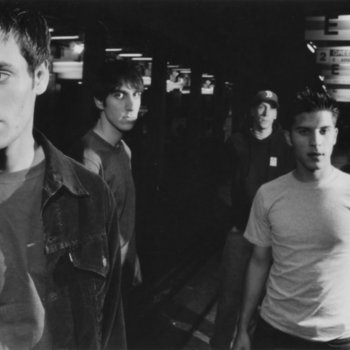

The emotional hardcore that would inspire both Converge and Orchid was so prevalent in the early ‘90s that the more traditional hardcore sound was pushed to the margins. Boston’s hardcore scene has a long, weird relationship with high- and lowbrow distinctions (see: SSD’s mocking dirge “How Much Art Can You Take?”), so it didn’t take long for the pushback. Ten Yard Fight (along with New Jersey’s Floorpunch) burst on the scene in 1995, ushered in a revival of the youth crew sound pioneered by Youth of Today and Chain of Strength. By the time Ten Yard Fight officially broke up—at the first National Edge Day in 1999—founding guitarist Anthony Pappalardo had already left to form In My Eyes. With Nothing to Hide, their second record, In My Eyes crafted a uniquely urgent and melodic version of the youth crew sound that allowed vocalist Sweet Pete’s thoughtfully direct lyrics to shine. “Welcome to Boston,” is the band at their most aggressive, all chunky palm-muted riffs and rumbling bass, while songs like “Perspective,” and “On My Side,” see Pappalardo incorporating NJ-style melodic hardcore, allowing the music to mirror Sweet Pete’s more inspirational moments. It’s a winning combination, one that bands like Crime in Stereo and A Wilhelm Scream would eventually make a Warped Tour staple.
American Nightmare
Year One


If In My Eyes were the paragons of youth-crew positivity, American Nightmare—formed in 2001 by Ten Yard Fight ex-guitarist Tim Cossar and former TYF roadie, Wes Eisold—were its diametric opposite: a hardcore band overflowing with negativity. Their potent mix of poetic self-loathing (lovingly pilfered from sad boy club night standards like the Smiths and Leonard Cohen) and outward fury marked a major sea change in hardcore. Eisold’s desperate howls, combined with his elegiac lyrics, set American Nightmare apart from the majority of the scene, even as they utilize the same set of sonic tools (gang vocals, breakdowns, clean guitars). The poisoned kiss-offs strewn throughout songs like “There’s A Black Hole In The Shadow Of The Pru” (“All the kids are fucking dead / I write with love and a gun to my head / These days aren’t gonna last too long”) further confirmed American Nightmare as outsiders in an scene of outsiders, a reputation they hold to this day.
Mental
Get an Oxygen Tank!
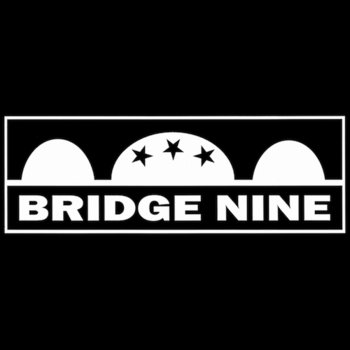

For a couple of years, you couldn’t throw a rock without hitting someone cribbing from the American Nightmare playbook. But because hardcore is cyclical, it wasn’t long before some enterprising souls decided to bring back a more old-school sound. Channelling the spirit of NYHC wrecking crews like Judge and more melodic bands like Supertouch, Mental aren’t afraid to bring fun back to hardcore. Pair that with a relentless touring schedule, and you had a recipe for massive success. Gatekeeping and revivalism sometimes go hand in hand, but Mental side-step this by being as dumb as possible. Breakdowns are stupidly huge (“Growing Pains”), and their slang-filled lyrics are easy to shout along with (“Chiller Than Most”, “Sike”). These are songs designed to be participatory. Vocalist Greg W. would go on to use the money he made selling “Yankees Suck” t-shirts outside of Fenway to found Lockin Out Records, which released records by a whole crew of bands inspired by Mental. Drummer Justin “Dance Floor Justin” DeTore, would become one of Boston’s most prolific musicians, plying his talents in No Tolerance, Innumerable Forms, the Rival Mob, Magic Circle, Righteous Jams, and Mind Eraser, among others.
Have Heart
Songs to Scream at the Sun
While Mental incorporated a healthy sense of humor into their old-school revival, Have Heart never met a subject they wouldn’t earnestly approach. Led by vocalist Pat Flynn, the quintet made self-serious hardcore vital again. Have Heart wasn’t just a group of old-school revivalists, they were a band immensely concerned with the idea of legacy. On Have Heart’s debut album, The Things We Carry, Flynn is at his most polemic, channeling equal parts Greg Bennick of Trial and Zack de la Rocha of Inside Out. On Songs to Scream at the Sun, the group grappled with more adult issues: the weight of inherited Boston masculinity, the relentlessness of touring and familial separation. The music grew up too, trading simple release for overwhelming tension that resolves in huge, slow riffs, rather than the immediacy of a simple breakdown. “On The Bird in the Cage,” charges out of the gate, but after a mid-song explosion, ends with Flynn despondently screaming, “Walk away, walk away,” a far cry from the certainty of their earlier work. Have Heart didn’t fully abandon the positive attitude they championed, but instead tempered it with their adult experience, creating a brand of youth crew that resonates far beyond the Boston metropolitan area.
Firewalker
Alive


Boston hardcore has always had a problem with misogyny. Take a glance through the lyrics (or the arrest records) of a variety of big-name Boston bands, and you’ll find an abnormally large amount of venom directed towards women, or those with attributes typically associated with femininity. “Role Model,” Firewalker’s opening salvo on Alive, starts with a sample of an unnamed band sneeringly dedicating their next song to “a type of girl, that thinks that they can find some kind of respect and status by knowing people who are influential in the scene.” Vocalist Sophie Hendry spends the next minute and a half taking hardcore hegemony to task, her near-death metal growls lacing lines like “It’s easy to find friends when you blend in the scene,” with toxic contempt. It’s a wake-up call for a scene that’s needed one for years—complete with very sick mosh parts. Alive marks the first time Firewalker’s production has really matched the heaviness of their riffs, and they truly make the most of it.
Pandemix
In Condemnation
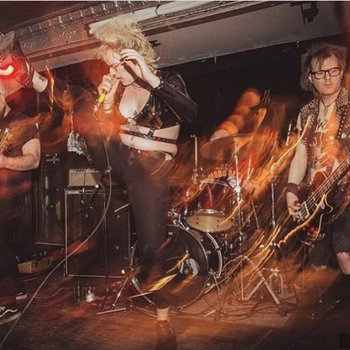
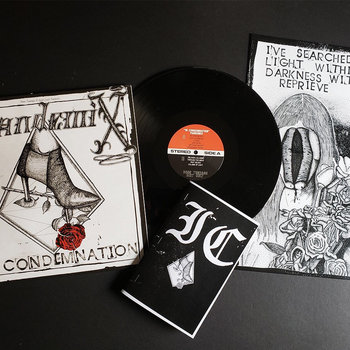

Vinyl LP

In Condemnation was recorded at Will Killingsworth’s Dead Air Studios, and while Pandemix’s hardcore approach to peace punk might share a lot of immediate similarities with Killingworth’s old band on first glance, both Orchid and Pandemix boast a heightened clarity of aesthetic and a sense of self-awareness that set them apart from the bold font stylings of the majority of Boston hardcore. Vocalist Shannon Thompson’s careful and venomous enunciation provides a steady anchor while the rest of the band produces a queasy angular racket that starts and stops on a dime. Thompson and company have crafted a deliberately dizzying experience (“One of the reactions that I most strive for is to evoke an underlying feeling of ‘wrongness’”), proving that even 40 years in, there’s still an immense amount of vitality in the Boston scene.







